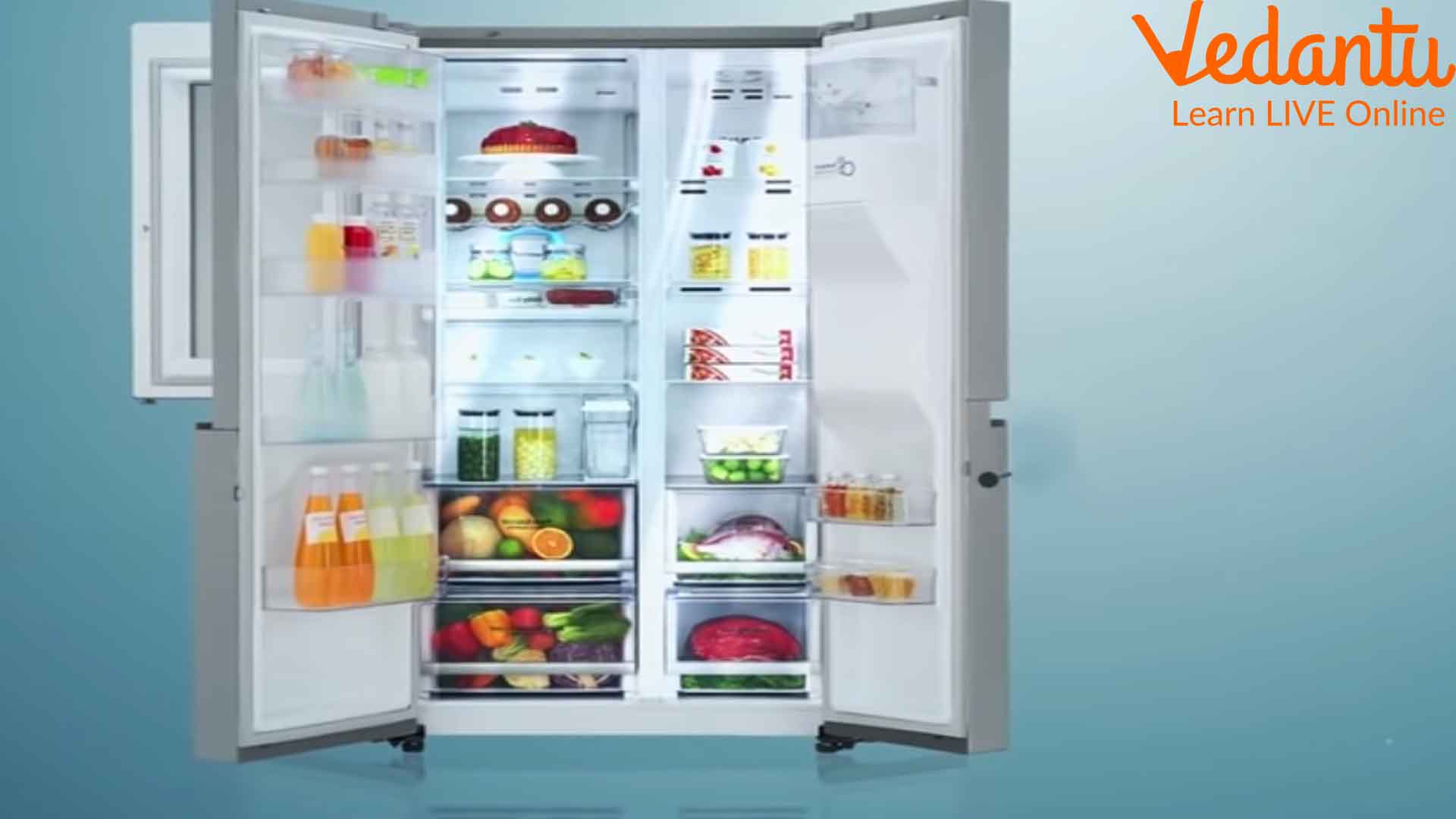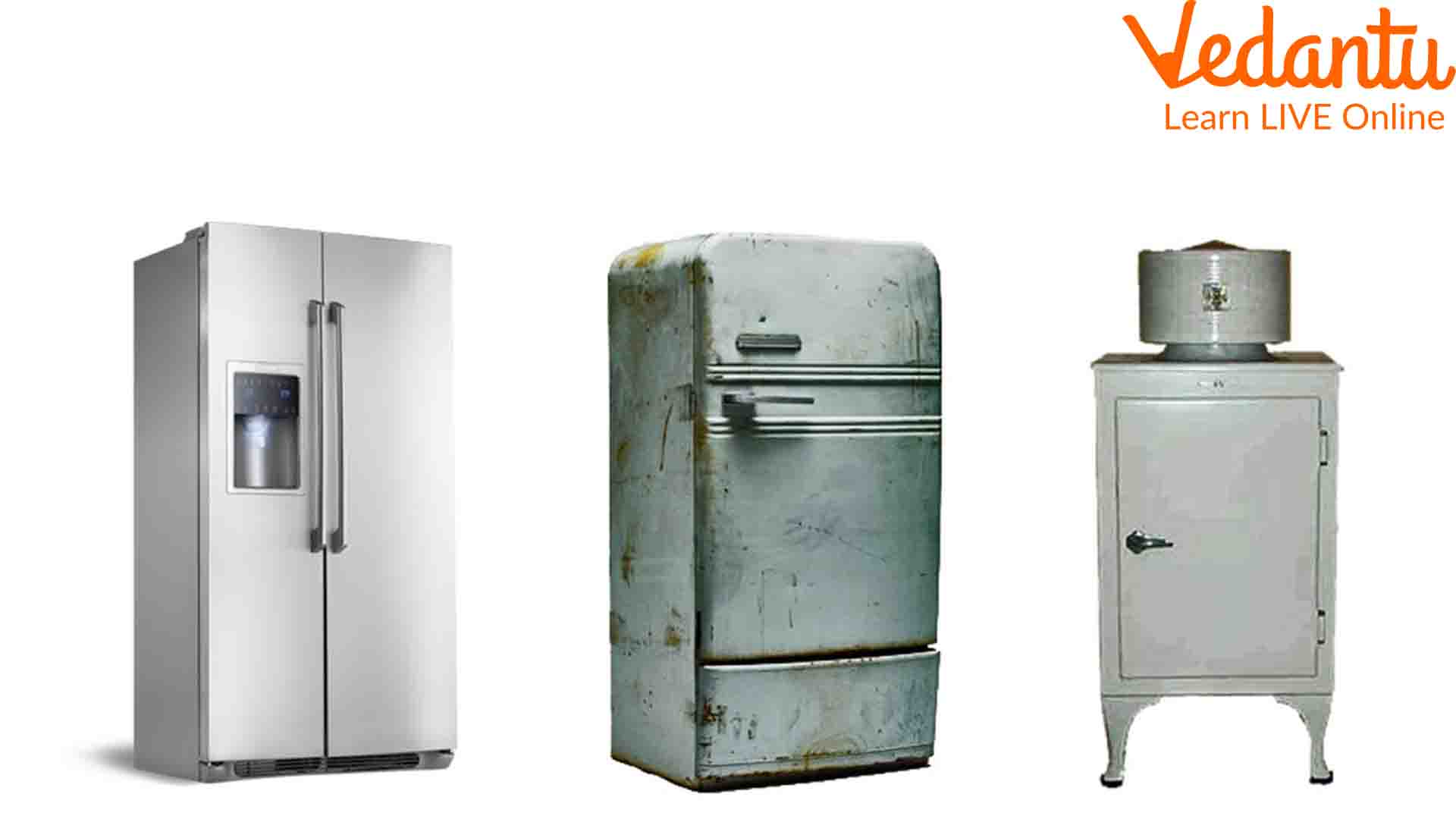How has the Refrigerator Changed Over the Years?
Food storage has been a part of every household for centuries. It is not just today that people feel the need to preserve cooked food or green vegetables to be used in the forthcoming days. So, how did people store their food in earlier times? The answer is simple. The ancient techniques and methods helped them preserve food in the absence of a home refrigerator. But with time, the need and invention of the refrigerator eventually happened.

Modern Refrigerator
The modern refrigerator you see today is nothing but the new version of the old household refrigerators used centuries ago. This evolution of refrigerators dates back to 500 B.C. So, in this blog, we have mentioned why people started using refrigerators in their households, their innovation and modernisation.
Why did People Start Using Refrigerators in their Households?
What is a refrigerator? To know the answer to this question, you need to understand why we use it. Apart from using refrigerator machines to preserve food in households, people felt the need to store food when they moved to new cities or a place far away from food sources. Eventually, people demanded fresher food. But on being away from home, people felt the need to use a refrigerator to keep the food cold while travelling, or living somewhere away.
This concept, however, has not changed in all these years. That is why many companies eventually started building electric refrigerators, which have become essential for every household. Though you know that using refrigerators is not a modern concept, it can amaze you to know that the innovation of refrigerators is not years but centuries old. If you want to know about the evolution of refrigerators, we have mentioned every detail about it below.

The Evolution of Refrigerators
The evolution of refrigerators has undergone many years of innovation and changes. With time, companies started to bring more modernised versions of refrigerators. But how did the modern refrigerator come to the market? To know the answer to this question, follow the details we have mentioned below regarding the evolution of refrigerators.
Did you know that before the modern refrigerator came to the market, there were ice houses that people used as refrigerators? It is one of the earliest forms of modern refrigerators. Hebrews, Romans and Greeks stored ice cut from the lakes and rivers in 500 B.C.
After the concept of the ice house was applied, the next oldest form of refrigerator became famous in the 1740s. It was William Cullen, a Scottish scientist, who invented the concept of using the artificial refrigerator in households. So, if you want to know who invented the fridge, William Cullen is the name you need to remember.
Before knowing who invented the fridge or whose idea it was to build the artificial cooling machine, many people did not know when the concept of the refrigerator started getting popularised. In 1802, the concept of the icebox flooded the American market. That was the first step towards making the modern fridge.
Thomas Moore, an American businessman created the icebox to preserve various dairy products, especially for travellers. As this machine was used to store the dairy products in cold temperatures, it was called a ‘refrigerator.’ That is why Thomas Moore can be considered to be one of those people who invented the refrigerator.
Around 1834, another man came up with a unique idea to modernise refrigerators. Jacob Perkins, an American inventor, produced the world’s first working vapour-compression refrigeration system by using ether. That is why he is also famous as the man who invented the refrigerator.
In the 1840s, another use of refrigerators could be seen. The carpenters made an icebox that had insulated wooden boxes lined with zinc or tin. These wooden boxes were used to hold blocks of ice.
The use of refrigerators had gone a little further when German Engineering professor Carl Von Linde invented the process of liquefying gas. It later became part of the basic refrigerators. This discovery was the turning point in the innovation of the modern refrigerator.
The history of refrigerators has seen a sudden twist when the first electric refrigerator was invented. Fred W. Wolf invented this and it was popularly known as Domelre. Though this model failed to get popular in the American market, the innovation of the cube tray got popular, and later it was incorporated into the modern versions of refrigerators.
In 1918 when Frigidaire Company started to produce refrigerators based on Alfred Mellows’ concept, the Kelvinator company produced the first refrigerator with automatic control. This can be considered the world's first fridge.
Since the refrigerator’s introduction, the vapour compression systems had been the reason for various accidents due to toxic gas leaks. So, in the 1930s, many kinds of research were conducted to produce a safe refrigerator. That is why Freon was invented.
The mass production of modern refrigerators started after World War 2. In the 1940s, bottom-cooling refrigerators were introduced, which became the pivotal concept of inventing modern refrigerators.
Another change came when the refrigerator-making companies started to focus on building fridges that were more energy-efficient and eliminated the use of Chlorofluorocarbons. These concepts became more famous between the 1970s to 1980s when the companies wanted to replace Freon with a more developed one.
During the 1990s to 2000s, companies started to build refrigerators where they could apply internet connections. Where LG built the world’s first connected refrigerator, Samsung produced refrigerators with cameras and Wi-Fi connectivity.
In 2017, a Russian designer is believed to have adopted a Zero Energy Bio Refrigerator concept to preserve food at low temperatures.
Conclusion
Refrigerators have always been one of the most essential household tools because their cooling facilities have never gone unnoticed by anyone. Since cooling machines like refrigerators became essential, companies started to innovate them by using various methods.
From 500 B.C to the modern time, the innovation of refrigerators has been through discoveries, failures and changes. That is how it has become one of the most energy-efficient devices of all time that can not only preserve food in cold temperatures but can also keep track of the food.







